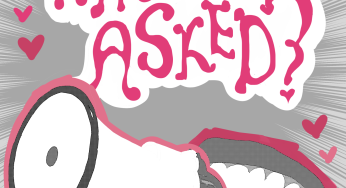EDITORIAL – Bikers without helmets should use their heads
Here’s a shocker: Since Pennsylvania repealed the universal motorcycle helmet law in 2003,… Here’s a shocker: Since Pennsylvania repealed the universal motorcycle helmet law in 2003, deaths and hospitalizations because of head injuries have increased.
A recent Pitt study released Thursday revealed that when the law was repealed, helmet use by motorcyclists decreased from 82 percent to 58 percent. As a result, there was a 32 percent increase in head-injury deaths and a 42 percent increase in head-injury hospitalizations.
No surprise there. We are surprised, however, that Pennsylvania legislators chose to repeal the law in the first place. The earlier law required all cyclists, regardless of age, to wear a helmet. As it stands now, however, the law only requires motorcycle operators and riders younger than 21 to wear helmets. Everyone else is free to ride without head protection, making them vulnerable to serious injury and death.
Those in favor of the repeal argue that the state government does not have a right to interfere in the individual choices of its citizens. But deciding to wear a helmet is not just an individual choice. Motorcycle accidents not only impact the victim but also the victim’s family and friends, who often suffer emotional trauma as a result. Accidents can also affect taxpayers, who are forced to pay for the medical costs of accident victims who lack health insurance.
An obvious parallel to the helmet law is the mandatory seat belt law. While the decision to wear a seat belt directly affects only one person, the consequences of choosing not to can indirectly affect many people in the same way the decision not to wear a helmet might. If wearing a seat belt is compulsory in Pennsylvania, then wearing a helmet should be as well.
While the state does not always have a right to involve itself in the personal choices of its constituents, certain exceptions must be made when the safety of its citizens is in question.
The reality is that no matter how careful the motorcyclist, accidents and injuries can happen. Other drivers or bikers on the road might not be responsible and, because of their actions, could hurt others. For this, precautions must be taken.
There is also no reason for bikers to be concerned about the helmet impairing their hearing or vision. According to the U.S. Department of Transportation, a person who wears a helmet can hear just as well as a person who does not. Helmets come in many shapes and designs. Therefore, bikers can simply choose a kind that does not obscure their vision.
In 2006, when Steelers quarterback Ben Roethlisberger broke his jaw in a motorcycle accident while not wearing a helmet, heated debate arose over Pennsylvania’s repealed law. With the release of this study, it’s time we re-examined the repeal and made every effort to influence Pennsylvania lawmakers to undo their damage.
Recent Posts
Marquan Pope: The ultimate shark
One of the most remarkable things about sharks is that an injury doesn’t deter them.…
Who Asked? // Do we really get a summer vacation?
This installment of Who Asked? by staff writer Brynn Murawski mourns the seemingly impossible perfect…
Notes From an Average Girl // Notes from my junior year
In this edition of Notes From an Average Girl, senior staff writer Madeline Milchman reflects…
Meaning at the Movies // The Power of the Movie Theater
In this edition of “Meaning at the Movies,” staff writer Lauren Deaton discusses her love…
EMBRACE sponsors Black Maternal Health Wellness week
Because Black women’s maternal health is not institutionally prioritized, Pitt’s EMBRACE sponsored a Black Maternal…
Local ‘Standing Wave’ coffee truck energizes the Pitt food scene
The small business coffee truck “Standing Wave” has become a beloved new coffee spot on…




